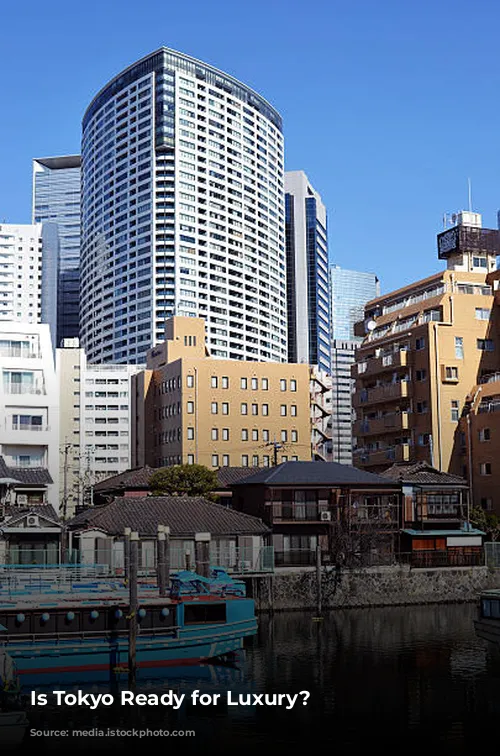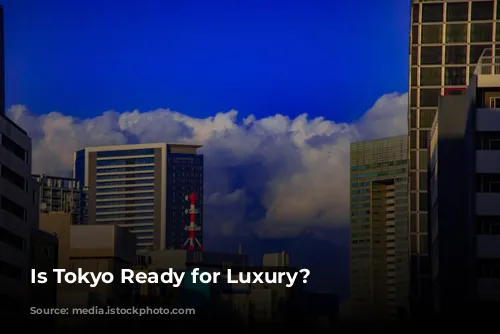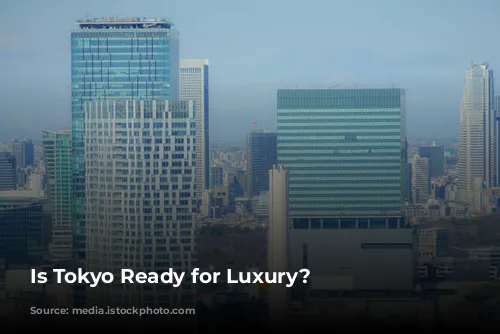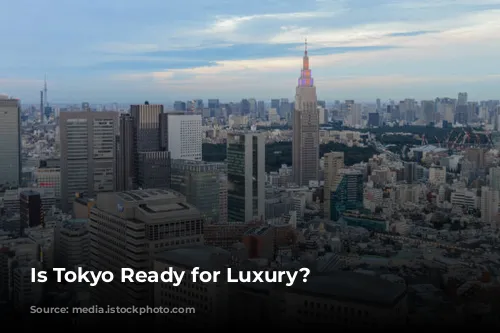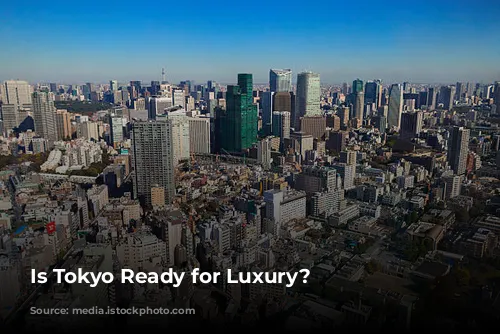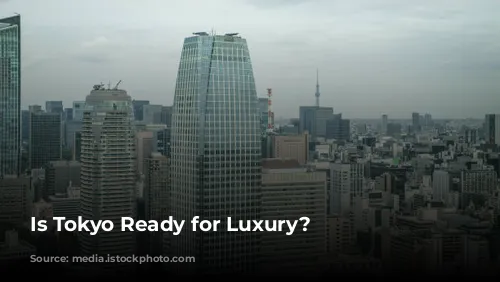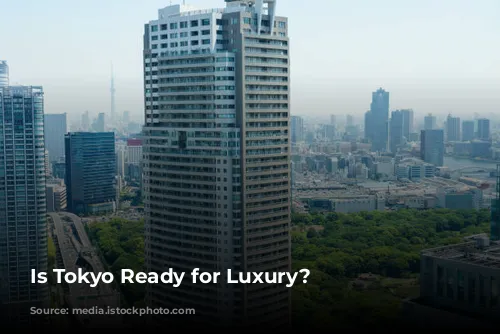Tokyo is booming! With more and more tourists arriving from all over the world, the city is experiencing a surge in popularity. But as a growing number of visitors flock to the Japanese capital, one key question arises: is Tokyo’s luxury hotel market ready to welcome them?
The buzz at The Peninsula Tokyo: Stepping into The Peninsula Tokyo, guests are greeted by a symphony of sights and sounds. A graceful spiral staircase leads to the main lobby, where a soothing melody drifts from a pianist and flutist. The centerpiece of the space is a luminous bamboo dragon sculpture by renowned artist Keisen Hama.
Room for improvement? Just a few floors above, Sonja Vodusek, the Peninsula’s general manager, gazes out from her office windows at the Imperial Palace and Hibiya Park. Despite the recent arrival of luxury hotels like Hoshinoya Tokyo and Prince Gallery Tokyo Kioicho, Vodusek believes that Tokyo is still lacking in accommodations for the growing international luxury travel market.
“Tokyo has seen a lot of growth in the international luxury hotel market in recent years, but with Tokyo being the capital of the world’s third-largest economy, we should have seen even more,” says Vodusek, who began her hotel career in Tokyo in 1992 as a room attendant. “It leaves Tokyo in a tough spot with not enough rooms for big events like the 2019 Rugby World Cup and the 2020 Summer Olympics.”
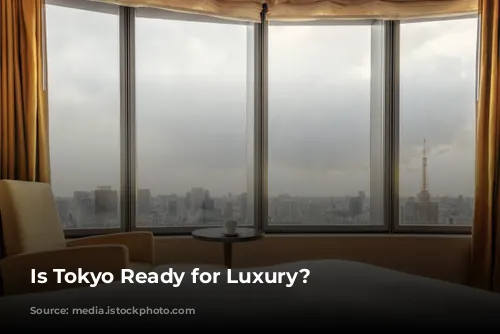
Luxury in Tokyo: A Growing Market?
Tokyo’s luxury hotel scene is a bit of a mixed bag. According to Five Star Alliance, a luxury hotel directory, Tokyo boasts 26 five-star hotels, a number that pales in comparison to other major cities like New York (114), London (112), Paris (81) and Dubai (70).
The Hilton Tokyo: A beacon of hospitality: The Hilton Tokyo, a 30-year-old landmark in Shinjuku, is the Japanese capital’s longest-standing international hotel. Mike Williamson, the hotel’s general manager, notes that Hilton operates four hotels in Tokyo, including Tokyo Bay, compared to 30 in London.
“There’s still a huge opportunity for high-quality international hotels to open here. It seems like we’re short on them,” says Williamson, taking a sip of cappuccino in the hotel’s executive lounge. “The Japanese government is clearly focused on increasing the number of inbound tourists, and with that, there’s going to be a need for more hotel rooms in Tokyo at all price points.”
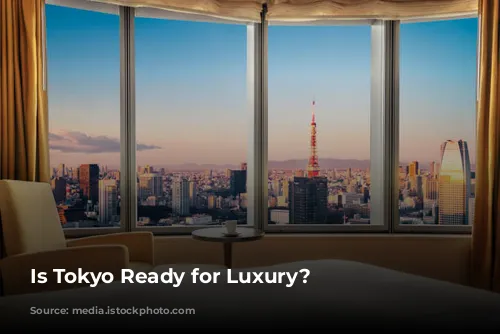
A Growing Demand for Luxury
Tourism in Japan is on the rise: The Japan National Tourist Organization (JNTO) had set a goal of 20 million foreign tourists per year by 2020. With over 2 million visitors arriving in Japan in April alone, officials now expect a total of 25 million by year’s end. The new projection for 2020 is 40 million foreign tourists, with a target of 60 million by 2030.
Tokyo is awakening to the potential of luxury tourism: “The past couple of years have been good,” says Williamson, reflecting on the booming tourism industry. “It’s a mix of economic factors, but there’s also a growing awareness of Tokyo as a destination. It’s almost a reawakening.”
Research suggests that the occupancy rate for Tokyo’s luxury hotel market surpassed 90 percent in 2014, the highest in the world. Low room rates, once a deterrent for international hotel chains, are also climbing. The average room rate for the Palace Hotel Tokyo has doubled to ¥50,000 since it opened four years ago.
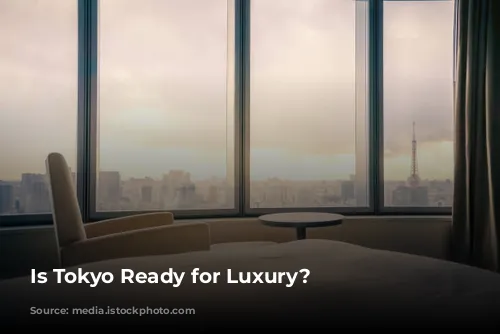
The Challenges of Building Luxury in Tokyo
The costs of luxury: Historically, high construction costs and limited land availability have discouraged developers from building new hotels in Tokyo. Many new hotels are opting for mixed-use developments, sharing buildings with offices or retail spaces.
A changing landscape: Among the newest luxury hotels to open in Tokyo are the Andaz Hotel, nestled in the upper floors of the Toranomon Hills high-rise complex, Aman Tokyo, perched atop Otemachi Tower, and the Prince Gallery Tokyo Kioicho, spanning six floors of a commercial building near the Imperial Palace.
More luxury on the horizon: The first Langham-branded hotel is set to open in Roppongi in 2019 as a standalone property. The Four Seasons, currently under construction, will welcome guests to the upper floors of a commercial building in Otemachi in 2020.
Renewing classics: The beloved Okura Hotel will reopen in 2019 after a ¥100 billion renovation. Betty Ozaki, Japan director of Leading Hotels of the World, a consortium of independent hotels, says that the Imperial Hotel also plans to renovate within the next three years.
“Over the next few years, the luxury hotel market is going to be very competitive,” says Ozaki. “[The Okura] felt that with these international luxury hotels entering the market, and in order to maintain their status as a Japanese-owned and -managed luxury hotel, it was time to close, tear down and rebuild. …Other hotels, such as the New Otani and even the Imperial, will need to adapt to compete with this new business.”
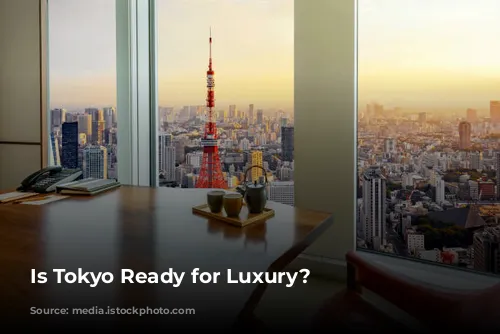
Renovating and Reimagining Luxury
Hilton Tokyo’s renovation: Williamson notes that Hilton Tokyo recently completed a $40 million renovation, encompassing all 800 rooms and its restaurants.
“I think you’ll see more renovations than new openings, simply because there aren’t many empty sites in Tokyo for building new hotels,” he says. “The focus will likely be on refurbishing existing hotels. There might also be an increase in the number of brands entering the market. That was certainly the case [before the London Olympics].”
A sign of demand: Ozaki was surprised to see Aman, an Asian beach resort group known for its rooms that can cost up to ¥100,000 per night, open in Tokyo. She views it as a clear indication of the demand for luxury in the capital.
“The corporate business market has grown significantly,” she says. “There are many executive board meetings and conventions taking place, and there’s a rise in cruise ships arriving this year. They’ve doubled, tripled. These cruise ships are bringing new visitors who are typically high-end, wealthy people who stay in luxury hotels.”
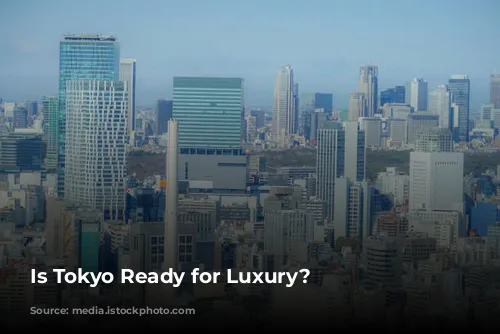
Tokyo’s Luxury Moment
Grand Hyatt Tokyo’s renovations: Steve Dewire, general manager of Grand Hyatt Tokyo, reports that the hotel in Roppongi is currently undergoing two phases of renovations to its event venues. With Tokyo preparing for the 2020 Olympics, Dewire is confident that the city will seize the opportunity to shine on the world stage.
“The industry is showing that luxury travel is very much desired and doing well. I think the number of hotels that have been coming the last few years indicates that major chains have a significant international interest in being in Tokyo,” says Dewire, seated in one of his hotel’s deluxe suites. “Each hotel has worked hard to create its own identity and sense of service, its connection, and that benefits the entire industry here and reflects well on Tokyo.”
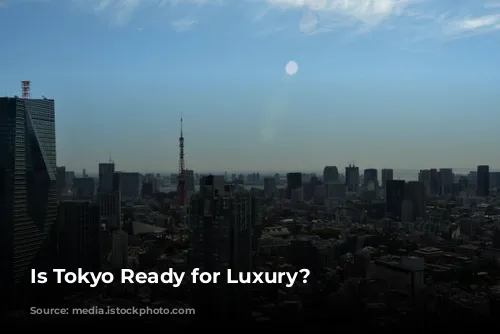
Challenges and Opportunities: A Look Ahead
A global spotlight: As the JNTO works to attract high-end travelers, multinational hoteliers in Tokyo face a number of hurdles.
Room for growth: Vodusek points out that Tokyo’s room rates are still lower than those in New York, Paris and London. Other concerns include the lack of airport transfer options and VIP services and the shortage of skilled international personnel.
“The world—now more than ever—is focused on Tokyo,” she says. “What better time to showcase all that Japan has to offer, from its hospitality to its cuisine and technology? It’s a truly exciting time to be in Japan.”
From the author: This article was written by Nick Narigon.
